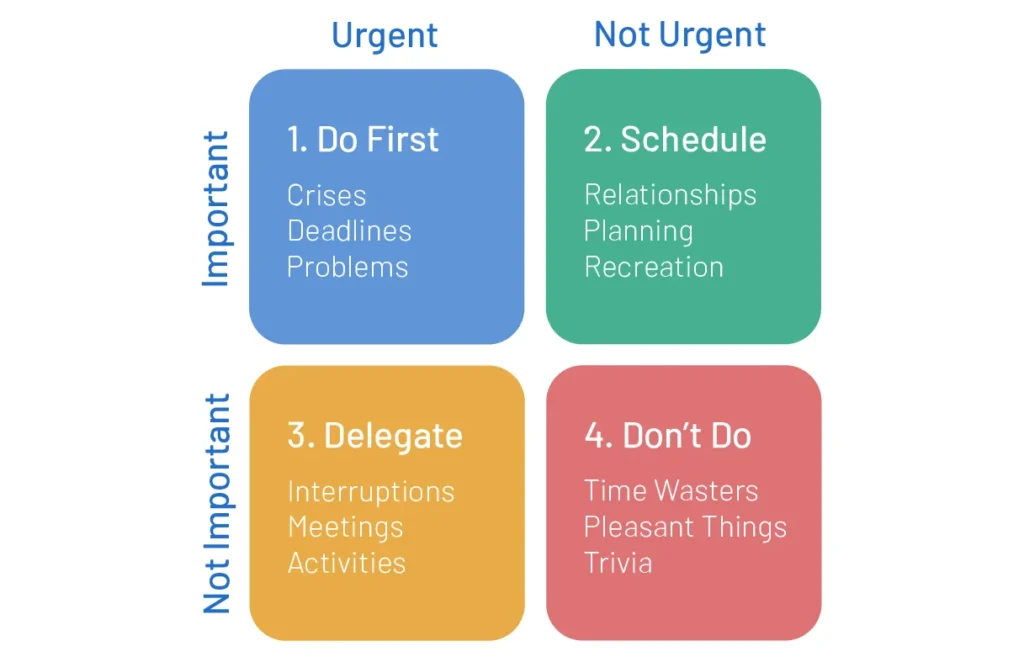
The Most Equally Distributed Yet Unequally Used Gift
Every human being on this planet is endowed with an equal amount of time every day: 24 hours. Regardless of age, status, wealth, or geography, time is the one resource doled out equally to all. Yet its impact varies drastically, because while it is equally distributed, it is unequally utilized. Time management is the secret that transforms a shared resource into unequal outcomes.
In my conversations with professionals from various industries, a recurring pattern emerges: A silent battle against time. People want to do more, achieve more, live more — but they find themselves overwhelmed, constantly behind, and increasingly unfulfilled. Despite using many technological tools, productivity hacks, and smart devices, they still feel that time slips away.
The real challenge lies not in how much time we have, but in how we manage it.
What You Will Gain From This Post
In this post, you will learn how to manage time effectively and discover how to master it strategically to unlock more resounding success and well-being. You will walk away with:
- A clear understanding of why time management is a meta-skill for career and life
- Practical insights from global leaders who use time as a secret weapon
- A life-tested framework (Covey’s Matrix) to organize and prioritize tasks effectively
- A guided process to shift from busyness to focused progress
- Proven strategies to reduce stress, enhance productivity, and achieve greater balance
Whether you are a high-performing professional in pursuit of sustainable growth or someone mid-career seeking clarity and control, this post will help you reframe your relationship with time — and, in doing so, elevate both your results and your well-being.
Time Management: The Skill That Elevates Everything Else
Time management is more than a way to stay productive — it is the foundation that supports almost everything you want to achieve. Whether you are aiming to lead better, grow in your career, create with focus, or find more peace in your day, how you manage your time shapes the outcome.
At its core, time management is about being intentional with your attention and energy. We have a limited amount of energy and ability to concentrate. It helps you focus on what truly matters to you and let go of what does not. It is not about doing more — it is about making room for the things that move you forward, with clarity, purpose, and peace of mind.
What Is Time Management
Time management is the conscious process of organizing, allocating, and prioritizing time to achieve defined outcomes. It involves three key elements:
- Clarity: Knowing what matters most to you.
- Control: Organizing your day around priorities.
- Consistency: Repeating good practices until they become second nature.
Done right, it leads to higher productivity, lower stress, greater clarity, and ultimately, greater life satisfaction.
Lessons from Those Who Mastered It
Look at high achievers across fields — CEOs, creators, scientists, or public leaders — and one trait emerges consistently: they treat time as their most valuable asset.
- Tim Cook begins his day at 3:45 AM, using early hours for deep work before distractions arise.
- Bill Gates breaks his day into 25-minute focus blocks — guarding time like capital.
- Jeff Bezos schedules critical meetings at 10 AM after a calm morning, prioritizing energy over urgency.
These leaders do not just manage their time — they design it with intention — avoiding the trap of overthinking and distraction — and focus on peak energy, priority tasks, and long-term impact. Their calendars reflect their values, not just obligations. The habits that define lasting success.
The Real Purpose of Time Management: Life, Not Just Work
Time management is not just a work skill; it is a valuable life skill. It is a life skill.
It allows you to build a balanced rhythm — one that gives space to your career ambitions, personal relationships, health, spiritual growth, and rest. It’s about creating a life you don’t need to escape from.
Many professionals claim they want more time with their families or more space to focus on personal growth, but these intentions often get overshadowed by daily demands. Time management is what helps fulfill those aspirations and makes them a reality.
Time management gives you back a sense of control. It reminds you that time is not something to chase — it is something you can use to your advantage and meet your needs. When you practice it consistently and with purpose, it becomes more than a tool for getting things done. It brings structure to your day, builds emotional resilience, and creates a steady rhythm that helps you stay grounded, even when life around you feels chaotic.
The Real Reason We Struggle to Manage Time
Across cultures, professions, and the globe, a common complaint is heard: “I am always running out of time.”
There could be many reasons, including these common ones:
- We overcommit without prioritizing.
- We confuse urgency with importance.
- We chase productivity at the cost of presence.
- We underestimate recovery and overestimate multitasking.
Modern life reinforces the chaos — instant messages, never-ending notifications, and meetings stacked back to back. We live in a world where attention is currency, and distraction is the norm.
The result? Declining performance, mental exhaustion, missed opportunities, and strained relationships.
The antidote is not working harder. It is working smarter, and that begins with mastering your focus.
The antidote is not working harder. It works smarter — and that begins with mastering your focus, reclaiming your time, and cultivating mental clarity through a clear vision and purpose.
A Timeless Tool: Covey’s Time Management Matrix
In a sea of tools and theories, Stephen Covey’s Time Management Matrix remains one of the most powerful frameworks for effective time management.
It divides all tasks into four quadrants based on two variables: urgency and importance.
- Quadrant 1: Urgent & Important
- Crisis tasks, deadlines, emergencies. (React mode)
- Quadrant 2: Not Urgent but Important
- Strategic planning, relationship-building, and personal development. (Proactive zone)
- Quadrant 3: Urgent but Not Important
- Interruptions, some meetings, superficial tasks. (Distraction disguised as work)
- Quadrant 4: Neither Urgent nor Important
- Time-wasters, mindless scrolling. (Avoid zone)
As Stephen Covey once emphasized, it is not about fitting your priorities into your schedule — it is about building your schedule around what truly matters.
The secret? Spend more time in Quadrant 2. That is where sustainable growth happens.
The secret? Spend more time in Quadrant 2. That is where sustainable growth happens — and where career growth depends on what you prioritize.
Here is a visual representation of Covey’s Matrix to help you map your tasks more clearly.

Applying the Matrix: A Practical Roadmap
Here is how you can integrate Covey’s Matrix into your routine:
- Weekly Planning: Start the week by listing all pending tasks.
- Categorize Each Task: Assign them to one of the four quadrants.
- Block Time for Q2 Activities: These are often overlooked, yet they drive long-term success.
- Limit Q3 & Eliminate Q4: Practice saying “no” to distractions and interruptions.
- Review and Adjust Weekly: Time management is not a static concept. It is iterative.
By following this rhythm, you begin to shift from reaction to intention — from busy to effective.
By following this routine, you begin to shift from reaction to intention — from busy to effective. It is the path to break free from overwhelm and manage time and energy with clarity.
The Hidden Benefits of Time Mastery
When you begin managing your time with discipline and purpose, you unlock several invisible advantages:
- Increased Productivity: You achieve more in less time.
- Improved Focus: Your attention sharpens around what matters.
- Reduced Stress: Less fire-fighting, more planning.
- Work-Life Harmony: You feel present in both personal and professional spaces.
- Self-Respect: You begin to honor your commitments to yourself.
These benefits compound over time. What begins as a productivity practice soon evolves into a way of living.
Over time, disciplined time management becomes more than a productivity hack — it transforms into a life philosophy that supports practices that nurture long-term well-being and purpose.
Final Reflections: Own Your Time, Own Your Life
Time is not just a resource. It reflects your values.
Take a look at your calendar — it reveals what you truly prioritize. If you want a life that feels meaningful, productive, and balanced, you must start by honoring your time as a sacred asset.
Mastering time management is not about doing more; it is about doing the right things, with a growth mindset. It is about doing what matters — consistently, calmly, and with full presence.
Let this not just be another article you read and forget. Let it be the moment you recalibrate. As Harvard Business Review insightfully notes, time management is about more than life hacks; it is about aligning how you spend your time with what truly matters.
What is one Q2 activity you will prioritize this week?
Facing time challenges or feeling stuck? Let us converse — sometimes, a single conversation unlocks a new direction.
Disclaimer: This article is based on personal experience and insights. It does not constitute financial, legal, or medical advice.




Sarwar you have addressed one of the burning issue of professional lives. I am sure Stephen Covey’s matrix helps in overcoming the challenging times when practiced consistently.